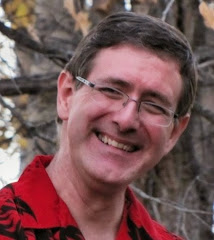When I was taking my biology class in Grade 9, it seemed like there were two kinds of students. The ones who got right into the poking and prodding of dissected frogs, and the kinds (far fewer) who stuck their noses in the textbooks. I enjoyed the Latin and the lists but not the smells or the sights of squishy things pickled in formaldehyde. That science class seemed to go on forever, and I was relieved to get to high school where I could safely indulge in physics and chemistry, and the closest I got to biology was the adjoining door between the two science classrooms or the friendly chit chat between the two teachers. I thought the biology teacher was wonderful, but not her subject matter. My classmates thought I was weird for having such a squeamish attitude, especially the ones who grew up on the farm. Even my mom, who hated collecting slimy wet eggs from under the hens first thing every morning was less squeamish than me. So this scripture passage in a time of social distancing is hard to fathom. Touching Jesus’ wounds would be hard enough at the best of times, but right now when we are not able to touch anyone, it’s unthinkable.
No wonder Thomas isn’t recorded as taking Jesus up on his invitation. He spoke rash words in haste to stop the other disciples from badgering him with what he thought were ridiculous claims, and like most rash words, they came back to haunt him. But also to heal him. We can relate to Thomas for we too are inundated with claims and con artists, false news and clever phone calls designed to catch us unawares. I have lost track of the number of phone calls I have recently received on my cell phone, saying that they are from Croatia or Dominica. They hang up immediately and I fight the temptation to call back because that’s what the scammers hope, then they can charge long distance rates and rake in the cash. Once it was a crying woman on the line sounding like she was in a panic too. Turns out this was happening all around mainline Vancouver. There are even people becoming famous on the internet for taking calls from scammers and playing with them, stringing them along and wasting their time so that the scammers don’t have as much time to get other victims. The impact is real. Seniors are especially targeted, and with the internet, it feels like we have to be increasingly diligent. More like Thomas than otherwise.
And yet Jesus said that we who believe are the blessed ones. We who learn to trust in something we have never seen, who learn to turn to God with the innocence of a loving child. Who may not always have concrete evidence or proof pickled in formaldehyde. We who like Mother Theresa, roll up our sleeves despite our doubts and do the things that God would have us do to make this world a better place. We who persevere despite what the doubting Thomases of the world might say or ridicule us for doing.
Today we are all locked in rooms of isolation and anxiety. We do not know what the future will hold both for us as individuals but also for us as a community, a nation, a world. On one hand, we are coming together for things like the “One World Together at Home” or the Friday night thank you parade honking for health care workers and grocery store employees, on the other hand we are seeing protesting demanding that curfews be lifted and jobs be reinstated. Or the policies of companies like senior’s care facilities or meat-packing plants.
How do we deal with the doubt and the anxiety? Sometimes we, like the disciples, need to lock ourselves in our rooms. But God enters our isolation, God disrupts our assumptions of what the world is really like, God shakes up our understanding of what is real and what is important. God is present right where you are, in this very moment. In your space!
Take a breath, a deep breath into your belly. Look around you for five things you can see. A crack in the ceiling, this piece of paper, Five things. Breathe. Four things you can touch like the doily or table cloth. Breathe. Three things you can hear, ticking clock or maybe a goose flying back north. Breathe. Two things you can smell, the smoke from your candle perhaps. Breathe again and notice one thing that you can taste, not just yet. Maybe the bread and juice that we will be sharing shortly.
We have an opportunity to practise this simple form of prayer, 5 sights, 4 touches, 3 sounds, 2 smells and one taste whenever we feel locked up and anxious. We can practise opening ourselves up to God more intentionally in our day. And we can remember that Jesus became present and real to Thomas not through his perfection, but through his wounds. When we see wounds, we know the experience is real. When we share wounds, we have the ability to heal. When we admit to God and a trusted friend or family member that we are hurting or afraid or anxious, we can learn that we are not alone in our struggles. There in our locked rooms, God is with us. In life, in death, in life beyond death, we are not alone, halleluiah!



